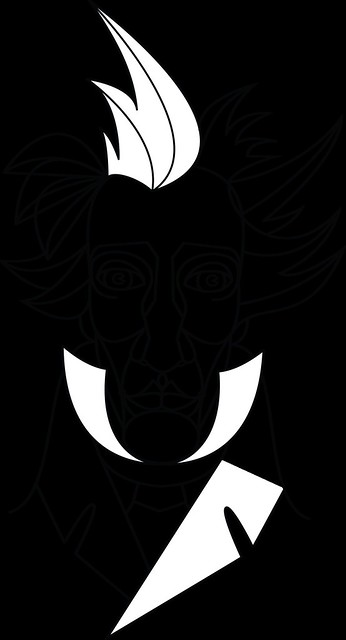by John Holbo on August 10, 2016
I wrote a survey article on “Caricature and Comics” for The Routledge Companion To Comics. (I’m sorry to say that the volume is currently very overpriced, although I trust in a few years they will release a more modestly-priced paperpack version, and the Kindle version price shall descend from the heavens, where it dwells.) However, Routledge allows authors to self-archive, so I did. Abstract:
Caricature and comics are elastic categories. This essay treats caricature not as a type or aspect of comics but as a window through which we can view comics in relation to the broader European visual art tradition. Caricature is exaggeration. But all art exaggerates, insofar as it stylizes. Is all art caricature, since all has ‘style’? Ernst Gombrich’s classic Art and Illusion comes close to arguing so. This article conjoins critical reflections on Gombrich’s discussion of ‘the experiment of caricature’ with a survey of art historical paradigm cases. It makes sense for comics to emerge from this mix.
And this seems like a nice occasion to showcase the newest addition to my small, but growing set of philosophical caricatures. Soren Kierkegaard!

[click to continue…]
by Chris Bertram on August 10, 2016
There’s nothing like a few unexpected days at home to allow you to discover new things, and the great find of the past few days — thanks to a tweet from Fernando Sdrigotti @f_sd — has been to watch (via Youtube, start [here](https://www.youtube.com/watch?v=vpijOSSlZCI) five programmes in all) some BBC documentaries about Albert Kahn and his Archives of the Planet, now preserved at the [Musée Albert Kahn](http://albert-kahn.hauts-de-seine.fr/) outside Paris. Born in Alsace, Kahn was displaced by the Prussian seizure of the territory in 1871 and became immensely rich though banking and investing in diamonds. But he was also an idealist, convinced that if the various tribes of humanity only knew one another better they would empathize more and would be less likely to go to war. In pursuit of this hope, and taking advantage of the Lumière Brothers’ [Autochrome](https://en.wikipedia.org/wiki/Autochrome_Lumi%C3%A8re) colour process, he sent teams of photographers to all parts of the globe and, before the First World War, caught many forms of life on the edge of being swept away by globalisation, war and revolution. (There’s quite a good selection [here](http://www.afar.com/magazine/a-trip-through-time) but google away.) Pictures taken around the Balkans, for example, depict the immense variety of different cultures living side-by-side at the time and then later we see the sad stream of refugees from the second Balkan War as they head from Salonika towards Turkey. Kahn’s operative document rural life in Galway, harsh penal regimes in Mongolia, elite life in Japan and a tranquil Rio de Janeiro with little traffic and few people.
Kahn’s hope for a peaceful world was lost in 1914, but we owe to his project many images of wartime France, particularly the life of ordinary people behind the lines. Postwar, Kahn was a great supporter of the League of Nations and, again, his operatives were on hand to document many of the upheavals of the inter-war years, such as the burning of Smyrna in 1922 (as Izmir, the city is once again crowded with refugees today) and the abortive attempt to found the Rhenish Republic in 1923. Many of the photographs are included in a book by David Okuefuna, *The Wonderful World of Albert Kahn: Colour Photographs from a Lost Age* (BBC Books, 2008). Sadly, Kahn was ruined by the Great Depression and died in Paris shorly after the Germans invaded in 1940. He seems little-known today, but there’s a lot of material out there that’s worth your time.
by Chris Bertram on August 10, 2016
The Guardian today [publishes a vast number of leaked reports from Nauru](https://www.theguardian.com/australia-news/2016/aug/10/the-nauru-files-2000-leaked-reports-reveal-scale-of-abuse-of-children-in-australian-offshore-detention), one of Australia’s offshore processing sites for asylum-seekers (in reality, a camp for the indefinite detention of asylum-seekers). The reports, or “unconfirmed allegations” as the Australian government would have it, are a harrowing catalogue of physical and sexual abuse, and of consequences for mental and bodily well-being, often suffered by children. These places exist to appease an Australian citizenry hostile to the arrival of “boat people” who believe that such people — even those determined to be refugees by Convention criteria — are not their problem. Though Nauru is a particularly vile example, it would be wrong to think that Australians are alone in their attitudes to refugees and asylum seekers. Other Western governments are happy to do deals with other states beyond their borders to ensure that the wretched of the earth are out of sight, where they can exist as an abstraction, not disturbing the conscience of their own citizens. Human rights, together with other liberal principles like the rule of law, have become, for many liberal democratic states, the exclusive right of the native-born citizen or, at best, someone else’s problem, somewhere else.
I’d be interested to learn from people in Australia now, how much traction this latest leak is getting in the Australian media. A surf to the websites of the Australian and the Sydney Morning Herald suggests not much.
